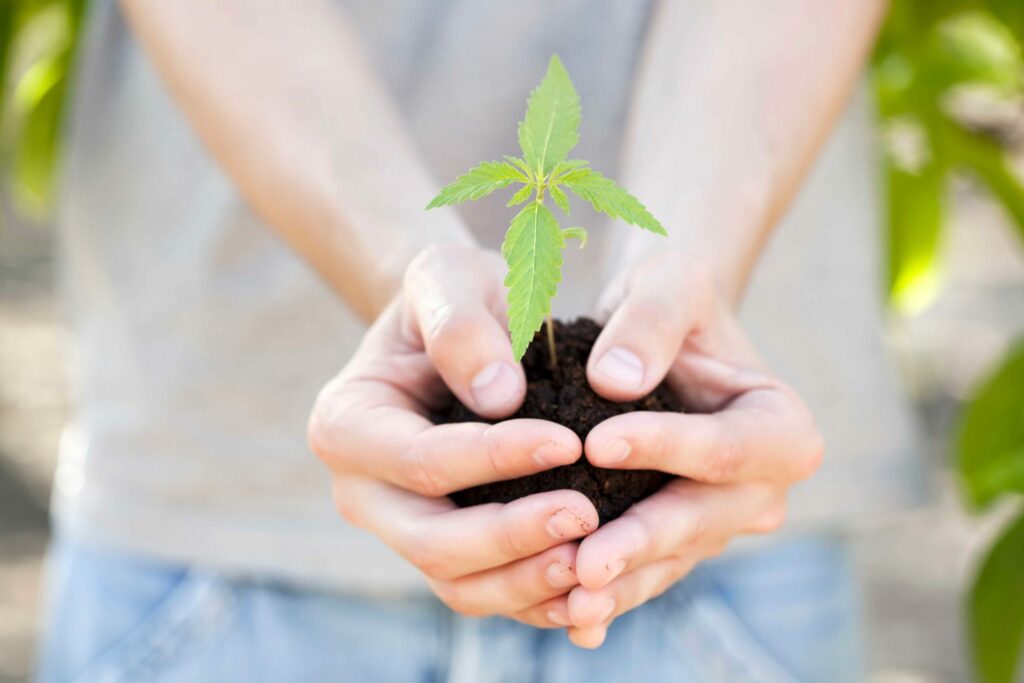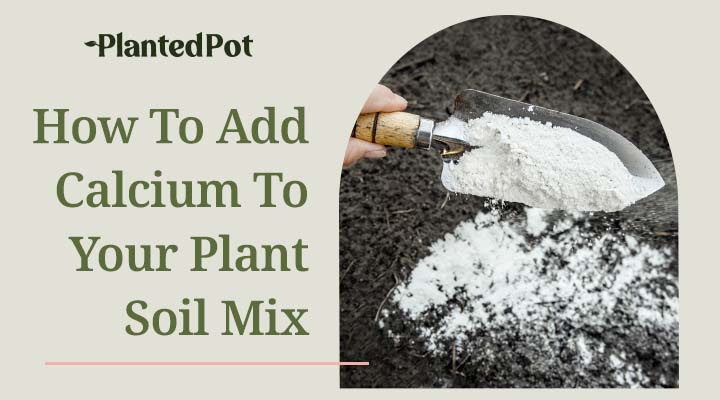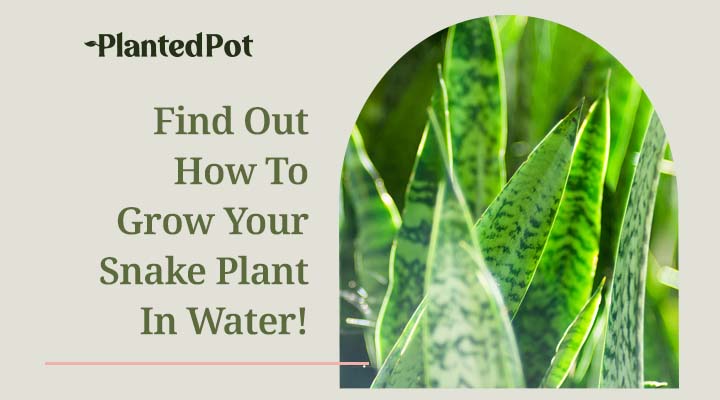
Are Snake Plants Toxic to Cats? [Yes, Here’s Why]
Home / Are Snake Plants Toxic to Cats? [Yes, Here’s Why]
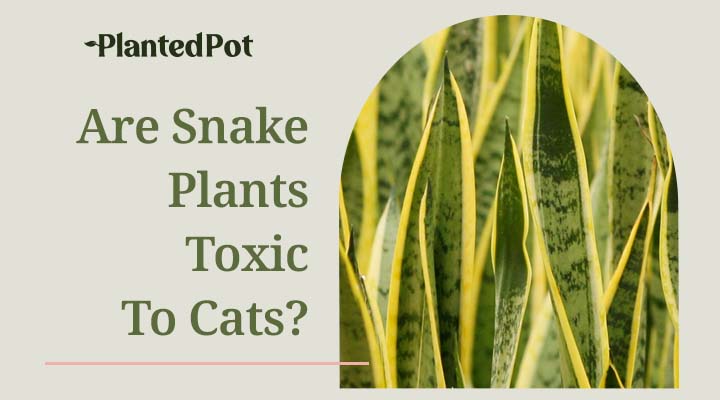
Are Snake Plants Toxic to Cats? [Yes, Here’s Why]
- Marc Rentschler
- November 17, 2021
- 11:46 am
- No Comments
Snake Plants are among the most popular houseplant varieties, enjoyed by many for their ease of cultivation and attractive looks. Because these beautiful plants make such a great addition to any home, they can be found decorating the space of plant lovers of all ages! But word of mouth might have concerned cat owners asking themselves, “Are Snake Plants toxic to cats?”
To answer briefly, yes, the Snake Plant is mildly toxic to cats when ingested. While most cats are unlikely to develop an interest in chewing on your Snake Plant, it is not impossible. As a cat owner, we know you want to keep your feline friends safe from harm. Are you interested or concerned about keeping a cat in the same space as your Snake Plants? Then read on to learn more so you can make the best decision to keep your cat healthy!
What Is A Snake Plant?
Snake Plants are a popular variety of plants that grow well in varying amounts of light and can be grown in indoor and outdoor gardens. Depending on where you are from, you might also know it as the magic sword, mother-in-law’s tongue, or golden bird’s nest.
Snake Plants are recognizable due to their sharp, angular leaves, which grow vertically in dense clusters. They have green-colored leaves with light patterning or yellow and white streaks. Snake Plants grow rhizomatically, so they spread fast. We recommend housing them in individual containers rather than in a larger grow box with other plants.
Because they are grown easily, this popular houseplant is a very common member of new plant owner’s collections. These plants do not have a high tolerance to frost and low temperatures, but they should prove resilient to most conditions and recover nicely from most forms of hardship.

Are Snake Plants Toxic to Cats?
So, is Snake Plant toxic to cats? Yes. Generally, Snake Plants are mildly toxic, causing digestion problems and issues similar to an allergic reaction. Most cats will not go for more than one bite of the plant due to the burning sensation it causes in the mouth, but the effects will be present regardless. In addition, the bitter flavor of the plant discourages most cats from taking a bite.
If you are a Snake Plant owner and your cat’s stomach seems upset, or they are frequently vomiting, check your plant for any visible bite marks to verify whether it is the cause for concern.
What Is Saponin?
Snake Plants contain a natural insecticide called Saponin, the main chemical also making them toxic to cats and causing the plant’s bitter taste. Saponin also acts as a fungicide protecting the plant from infection along with hungry insects. Saponin is an effective way for Snake Plants to protect themselves from pathogens and predators in the wild, but it is also the reason for their toxicity.
If Saponin comes into contact with skin, skin irritation can occur, causing dermatitis-like skin conditions. When swallowed in larger amounts, it can cause a swollen oral cavity or esophagus, which can prove life-threatening. If any of these symptoms are observed, you should immediately bring your cat to the veterinarian for physical examination.
Which Parts Of Snake Plants Are Poisonous?
To fend off disease and pests, Snake Plants contain Saponin throughout the entire plant. Because of this, all parts of the Snake Plant are considered poisonous and should be avoided to prevent harming the digestive system. Over time, Snake Plants may bloom, producing green-white flowers and orange-red berries, both of which will contain the toxin Saponin and so should not be eaten.
The juice of the Snake Plant is also toxic, so if it makes skin contact can cause mild skin irritation or, in worse cases, intense burning. This, however, remains unlikely in cats due to their fur.
What Happens If My Cat Ingests Part Of A Snake Plant?
Let’s say you just got home from a day at work or time out with friends and while examining your Snake Plant, notice a bite taken out of one of the leaves! You already know who the culprit is, but what could you expect to happen? While the Snake Plant contains various toxins neither we, not our pets should consume, the effects following consumption should be mild provided they did not consume too much plant material.
If your cat has eaten a lot of the plant, it will likely experience more intense symptoms. While it is very unlikely they will do so, it is important to get them help as quickly as possible to prevent symptoms from getting worse. Because it is better to be safe, call your veterinarian immediately if you suspect your cat has consumed any amount of your Snake Plant.
Symptoms of Snake Plant Poisoning In Cats
Although the bitter taste and burning sensation are often enough to scare most cats away, if your cat eats part of the Snake Plant, there are some symptoms you should be aware might occur. Symptoms will vary in severity depending on the amount of Snake Plant consumed. Some of the common symptoms you might observe include:
- Excessive drooling
- Raised blood pressure
- Oral irritation
- Excessive vomiting
- Diarrhea
- Nausea
- Abdominal pain
These could all be signs that your cat is currently suffering from Snake Plant poisoning. Early diagnosis is important in ensuring your cat is okay. So if they are showing any of these symptoms, take them to a veterinarian immediately.
What Do You Do If Your Cat Ingests Snake Plants?
In most cases, if your cat is not feeling well, it is advised to take them to the veterinarian as quickly as possible. But, there are still some things that you can do in the meantime to help mitigate or relieve some uncomfortable symptoms. Some of the things you can do in case your cat ingests a Snake Plant are:
- Make sure your cat drinks a lot of water: This can prevent dehydration that may occur due to diarrhea or vomiting.
- Remove leftover bits: Check their mouth and between their teeth to remove any lingering pieces of plant to lower overall toxin exposure.
- Contact Poison Control Center: Animal and human poison control centers can provide help or advice about Snake Plant poisoning.
- DO NOT induce vomiting: While it seems like a good response, do not induce vomiting in your cat unless instructed by a professional. Home remedies can potentially cause more harm than benefit, so be wary anytime you consider options such as this.
When your pet is sick, often the best you can do is try to get them to the veterinarian as quickly as possible. But much of what you can do also lies in how you can make the vet’s job easier. To help them do their best in helping your cat, be sure to provide them with your cat’s medical history. This will make them aware of any pre-existing conditions that might affect treatment. You can also note how much of the plant your cat has eaten and if you own any other houseplants to provide specific information to help your vet treat your cat.
Recovery
After you make sure your cat has undergone a checkup from your vet, you will likely need to give them a little help in recovering from the symptoms of Snake Plant poisoning. Snake Plants are only mildly toxic. So your cat should have a relatively easy recovery period consisting of only a day or two of rest. During this time, it is important to give your cat a little more care than usual to ensure they are staying comfortable during their recovery.
If your cat is having trouble eating, you can feed them chicken-based baby food or home-cooked skinless chicken cut into small pieces to make eating and digesting easier. Your veterinarian may recommend specific foods to go with their medicine to ease the process of introducing medicine to your cat.
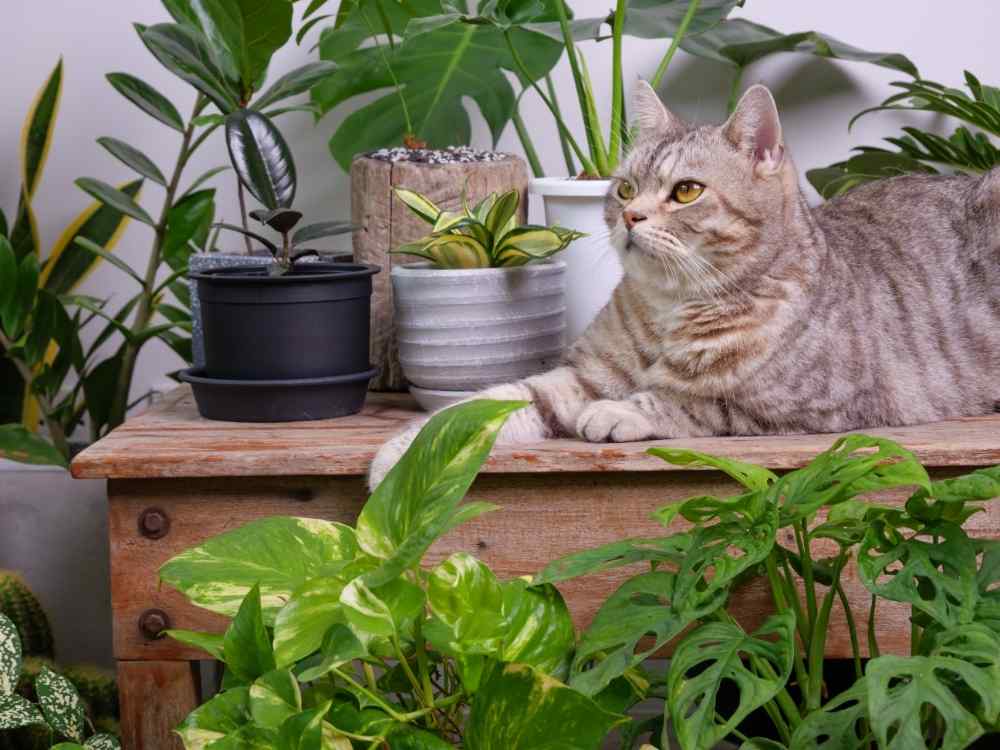
How To Prevent Your Cat From Eating A Snake Plant
Most of the time, the bitter flavor and burning sensation that come from biting the leaves of Snake Plants are enough to prevent a cat from eating enough to feel sick. However, cats are particularly curious creatures. So sometimes a little more is needed to prevent your cat’s mouth from finding its way into troublesome situations. Most of the time, not much can be done. Though, there are some tricks you can do as a cat owner to keep your environment pet friendly.
Plant Placement
Where you place your plants could be one of the biggest contributing factors preventing your cat from eating your Snake Plant. Cats are excellent at jumping and can easily traverse small spaces. This makes them crafty troublemakers when it comes to hiding things from them. However, if you put your plant at an inconvenient spot for them to reach, it is much less likely they will maintain a sustained interest.
Try placing your plants on a high shelf or above places where your cat will normally be able to see! Alternatively, you can place your Snake Plant in rooms that your cat is either not allowed in or does not frequently visit. If you want to ensure your cat will stay away from your plant, you can also place it outside.
Scent Diversion
As efficient hunters and devoted eaters of food, cats possess an amazing sense of smell. You can use their keen nose to your advantage in preventing your cat from chewing on your Snake Plants! Use lemon zest or cinnamon as effective and all-natural ways to prevent your cat from chewing your plants.
Cat Grass
If you begin to notice your cat particularly enjoys chewing on plants, you might consider growing them some cat grass! Cat grass is safe to consume and enjoyed greatly by most cats (hence the name!) Cat grass will not cause any reactions but can cause an upset stomach if too much is consumed at once.
Final Thoughts – Are Snake Plants Toxic to Cats?
Snake Plants are one of the easiest house plants to take care of. They are naturally one of the most popular options for decorating homes and adding some green to your space. Unfortunately, they are toxic to cats and people when ingested. However, Snake Plants luckily will only cause mild symptoms amounting to easily treated stomach pain and nausea.
Cat owners should always be sure they are informed of any health issues their pet may experience. As a plant and pet parent, it is always important to keep up with both to ensure one is not causing harm to the other!
